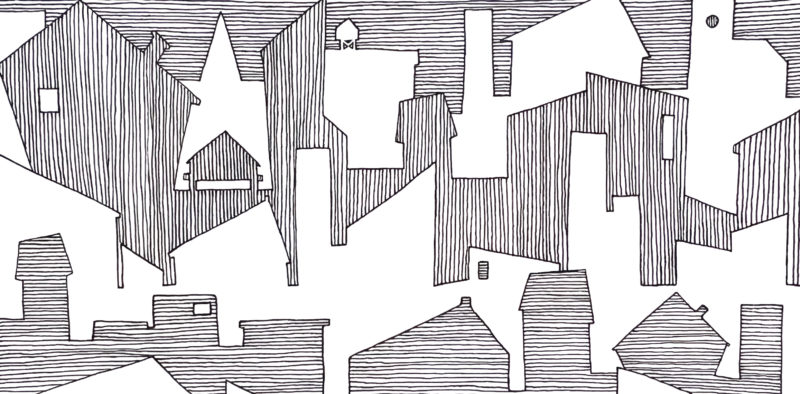You say, our village.
Do you mean our exact village,
The one we saw at dawn,
Where we watched the sunrise
And spent the morning,
The afternoon,
And the evening,
And where we stayed?
If you really mean
This village,
It has a village underneath,
And a village under that
Before the modern one you see:
A village before Islam;
Another village before Christianity;
Yet another before the kingdom
Of the Jews;
And one before the worship of the sun;
Yet another
Before the deities of anyone.
You say, our village.
Exactly which one out of these?
Our village is a veteran of
So many histories
That if you want to know
About the one below
Or about the one above
You have to say the number
Counting up or down.
You say, our village,
But is it at night,
Twilight, midnight?
The village where we sleep,
The village where we wake
At sunrise,
Or at the dawn of history?
All at once they make
One massive ladder
With endless rungs
Through vast and countless
Levels upon levels
Outspreading up and down,
Set deeply in eternity
To rise
Beyond the skies.
You say, our village, but
In relation to what?
The village has a village
Behind it and before;
To the right, in the middle,
On the left, and more
Villages beyond.
Our village runs the range:
From traditional, to hidebound,
To life in balance, and to change.
You say, our village, but
Merely numbering the districts
In the province looks
Like counting pages in a book
That should be read instead.
Step by step and inch by inch
Our village and our home
Is like our nation –
Exceeding any sum of its parts.
So, you say, our village.
Exactly which one?
Our village of the past,
Our village here, today,
The modern wannabe,
Or the village you can’t see,
And the village that will really be
Modern, even postmodern?
